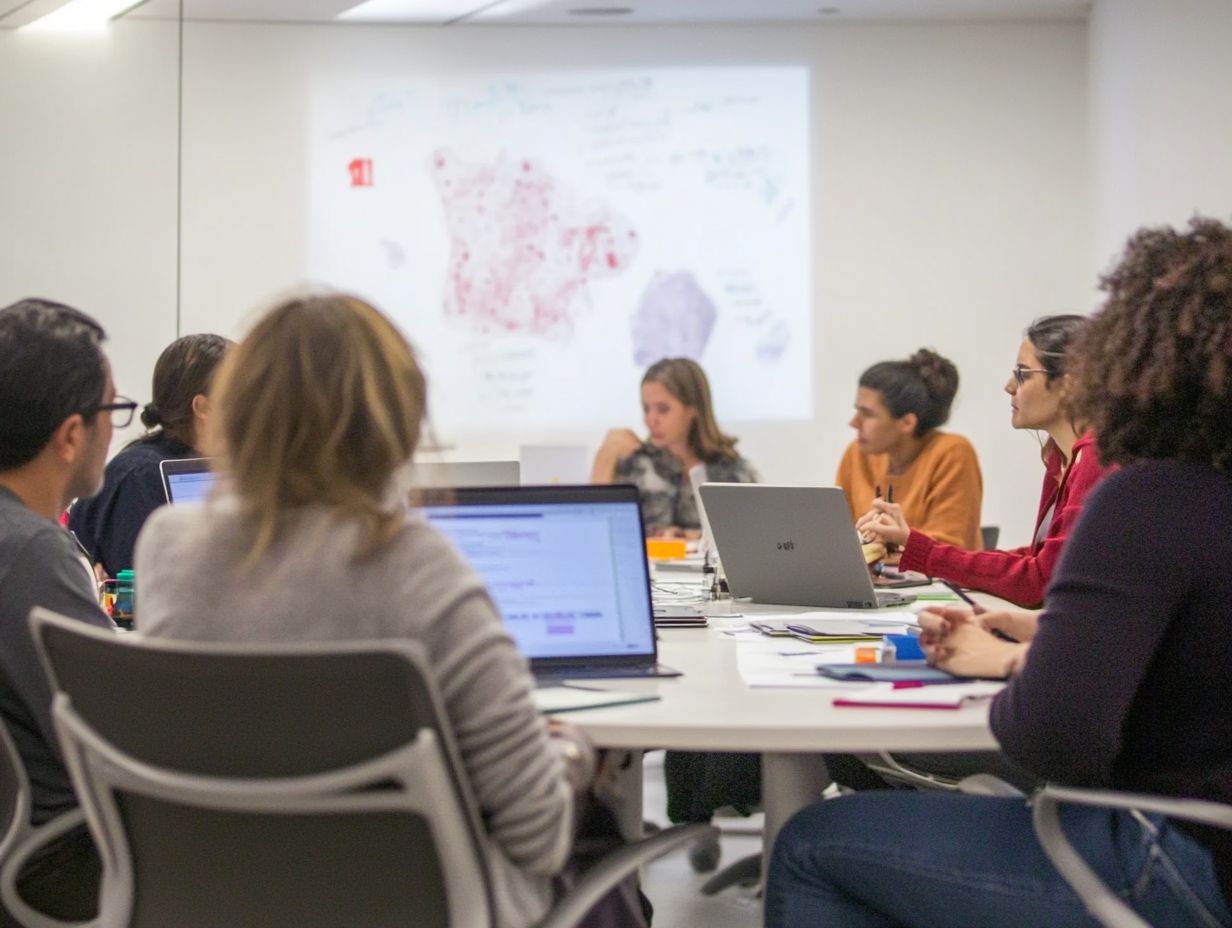Cancer myths are pervasive misconceptions that can distort public understanding and hinder effective prevention and treatment strategies. Common myths include ideas such as cancer being contagious, solely caused by bad luck, or that alternative treatments surpass traditional medicine.
Addressing these misconceptions is crucial for improving public awareness and fostering informed decisions regarding cancer health.
For example, the myth that cancer is contagious is false—cancer results from genetic mutations and environmental factors, not person-to-person transmission. Similarly, the belief that cancer is a death sentence is counteracted by advancements in early detection and treatment, which have significantly improved survival rates.
Understanding these myths and their debunking helps dispel misinformation, leading to better health choices and support for those affected by cancer. Engaging with accurate information promotes proactive health management and underscores the importance of evidence-based treatments.
Key Takeaways:
What are Cancer Myths?

Cancer myths are false beliefs about the causes, nature, and treatment of cancer.
Common cancer myths include ideas like sugar causes cancer and cancer is solely hereditary, ignoring the role of lifestyle factors like obesity and genetic mutations in cancer risk.
These myths can mislead people and hinder effective prevention and treatment, emphasizing the need for resources like the National Cancer Institute to provide accurate information.
Understanding and debunking cancer myths is essential to improving public awareness and making well-considered choices regarding cancer health, including awareness of non-hereditary cancers and the role of biopsies in diagnosis.
Myth #1: Cancer is Contagious
Cancer is not contagious. Cancer results from genetic mutations, such as those caused by HPV (Human papillomavirus), and environmental factors, not from person-to-person transmission.
While certain viruses like HPV can increase cancer risk by affecting cell DNA, they do not make cancer itself contagious.
Understanding this distinction reduces stigma and emphasizes prevention through healthy lifestyle choices.
Explanation and Debunking
Critique of the Provided Explanation
Your explanation meanders, lacking the precision and directness required for optimization. The goal should be clear, concise debunking, yet your response is burdened with unnecessary details and complex sentences that hinder comprehension. Here’s where it falls short:
- Lack of Direct Address: The answer doesn’t immediately debunk the myth with a strong, clear statement. Instead, it dives into causes and factors before addressing the myth directly.
- Abstract Language: Terms like “widespread fear and stigma” and “navigate the complexities” introduce unnecessary abstraction and emotional tone, which aren’t suitable for snippet optimization.
- Excessive Background: The explanation provides too much context on carcinogens and historical misconceptions, which dilutes the focus from the central myth.
- Overuse of Bridge Words: Phrases such as “over the years” and “ongoing cancer research” divert from concise myth debunking.
The explanation simply is not good enough for snippet ranking. For better results, focus on clarity and direct debunking.
Optimized Explanation for a Featured Snippet
The myth that cancer is contagious is false. Cancer is not spread through contact with others.
Cancer develops due to genetic mutations, environmental factors, and lifestyle choices, not through transmission.
Research confirms cancer is not a contagious disease.
Myth #2: Cancer is Caused by Bad Luck
Myth: Cancer is caused by bad luck. Fact: Cancer results from a complex interplay of genetic and environmental factors, including obesity and genetic mutations. Organizations like the World Health Organization emphasize the significance of these factors.
Lifestyle choices, such as diet and physical activity, significantly influence cancer risk.
Genetic predispositions, such as those identified through family cancer history, can increase susceptibility to specific cancers.
Understanding these factors promotes proactive health management and cancer prevention, highlighting the importance of research into genetic mutations and their roles in cancer development.
Explanation and Debunking
The notion that cancer is caused solely by bad luck is incorrect. Known risk factors such as obesity, smoking, and genetic mutations significantly contribute to cancer development.
Studies show that lifestyle choices, particularly obesity, increase the risk of cancers like breast, colon, and prostate cancer. Excess body fat disrupts hormonal balance, fostering cancer growth.
Genetic mutations also increase cancer risk. Individuals with a family history of cancer should maintain a healthy weight and lifestyle. Regular physical activity, a balanced diet, and avoiding tobacco reduce cancer risk.
Informed lifestyle choices are instrumental in reducing cancer risk.
Myth #3: Alternative Treatments are Better than Traditional Medicine

The myth that alternative treatments are better than traditional medicine risks patients choosing unproven therapies over scientifically validated cancer treatments like those recognized by the World Health Organization.
Traditional medicine offers evidence-based treatments, while alternative methods often lack scientific validation.
Patients should prioritize treatments tested for safety and efficacy and consult healthcare professionals to ensure complementary therapies do not replace necessary medical treatments.
Explanation and Debunking
Alternative treatments do not replace conventional cancer treatments like chemotherapy, radiation, and surgery.
Conventional cancer treatments, such as chemotherapy and radiation, are proven to extend survival rates and improve quality of life.
Complementary therapies, such as acupuncture and meditation, can alleviate symptoms but should be used alongside medical treatment, not as replacements for proven cancer treatments like cancer surgery or chemotherapy.
Consultation with an oncologist ensures that complementary therapies do not interfere with cancer treatment.
Myth #4: Only Older People Get Cancer
Myth #4: Only Older People Get Cancer is incorrect.
Cancer can affect people of all ages, including children and young adults.
Types of cancer such as leukemia and sarcomas occur in younger populations.
Approximately 15,000 childhood cancer cases are diagnosed annually in the United States.
Cancer in young adults includes types like testicular cancer, affecting men aged 15 to 35.
Cancer does not exclusively affect older adults.
Explanation and Debunking
The myth that cancer only affects older individuals is false. Young people also face risks for cancers like breast and thyroid cancer.
Studies show increasing cancer rates in individuals under 40, linked to environmental exposures and lifestyle choices.
Genetic predispositions and toxins contribute to cancer in younger age groups, emphasizing the importance of awareness and early detection for all ages.
Myth #5: Superfoods Can Cure Cancer
Superfoods cannot cure cancer. Belief in superfoods as a cancer cure is a misconception that can distract from proven treatments.
While superfoods contribute to a healthy diet, they should not replace conventional cancer treatments like those advised by the National Cancer Institute.
Balanced diets with fruits, vegetables, and lean proteins support overall health but do not cure cancer.
Cancer patients should follow professional medical advice for dietary choices during treatment.
Explanation and Debunking

Superfoods cannot cure cancer. While a balanced diet can support overall health, no single food cures cancer.
Cancer care requires proper nutrition, regular medical consultations, and effective treatments.
Research shows a well-rounded diet rich in fruits, vegetables, whole grains, and healthy fats may reduce cancer risk.
Informed dietary choices support well-being and complement treatment plans.
Myth #6: Cancer is a Death Sentence
Cancer is not a death sentence due to advancements in cancer treatments and early detection methods.
Improved therapies, such as immunotherapy and targeted treatments, have significantly increased survival rates for many cancer types.
Ongoing research continues to develop effective treatments, improving life expectancy and quality of life for patients.
Explanation and Debunking
Cancer is not a death sentence due to improved survival rates, early diagnosis, and effective treatments.
The American Cancer Society reports a five-year relative survival rate of 68% for all cancers combined, reflecting advancements in medical research and personalized treatment plans.
Community support and early diagnosis contribute to improved outcomes and quality of life for cancer patients.
Myth #7: Only Women Get Breast Cancer
It is a myth that only women get breast cancer. Men can also develop breast cancer, although at a significantly lower rate.
About 1 in 833 men will be diagnosed with breast cancer in their lifetime.
Age, family history, and genetic mutations contribute to breast cancer risk in both men and women.
Understanding these risks is important for early detection and treatment.
Explanation and Debunking
The myth that breast cancer only affects women is false.
Breast cancer can also occur in men, influenced by risk factors like genetic mutations and family history, similar to risks seen in prostate cancer and thyroid cancer.
Less than 1% of breast cancer cases are in men, but symptoms like lumps or breast changes should not be ignored.
Awareness of male breast cancer can lead to early detection and better treatment outcomes.
Frequently Asked Questions

Is cancer always fatal?
No, not all types of cancer are fatal. While cancer can be a serious and life-threatening disease, there are many types that can be successfully treated and even cured, contributing to improving cancer survival rates. Understanding the causes of cancer can also aid in prevention and treatment.
Can cancer be contagious?
No, cancer is not contagious. It cannot be spread from person to person through contact or other means. This is one of the common cancer misconceptions.
No, cancer is not contagious. It cannot be spread from person to person through contact or other means.
Do only older people get cancer?
No, cancer can affect people of all ages. While the risk of developing cancer does increase with age, it can still affect younger individuals. Factors such as obesity and cancer, as well as exposure to viruses like HPV (Human papillomavirus), can also contribute to cancer risk.
Is it true that having a family history of cancer means I will definitely get it?
No, having a family history of cancer does not guarantee that you will develop the disease. It may increase your risk, but there are many other factors that can contribute to the development of cancer. Regular screenings and biopsies can help in early detection and better management.
Does using a cell phone increase my risk of cancer?
No, there is no evidence that using a cell phone increases your risk of cancer. The type of radiation emitted by cell phones is not strong enough to cause harm. This concern is often listed among cancer misconceptions that lack scientific backing.
Can using deodorant or antiperspirant cause breast cancer?
No, there is no scientific evidence to support this claim. Multiple studies have been conducted and have found no link between the use of deodorant or antiperspirant and breast cancer. Consulting established resources like the National Cancer Institute (NCI) and the World Health Organization can provide further clarification on such matters.





